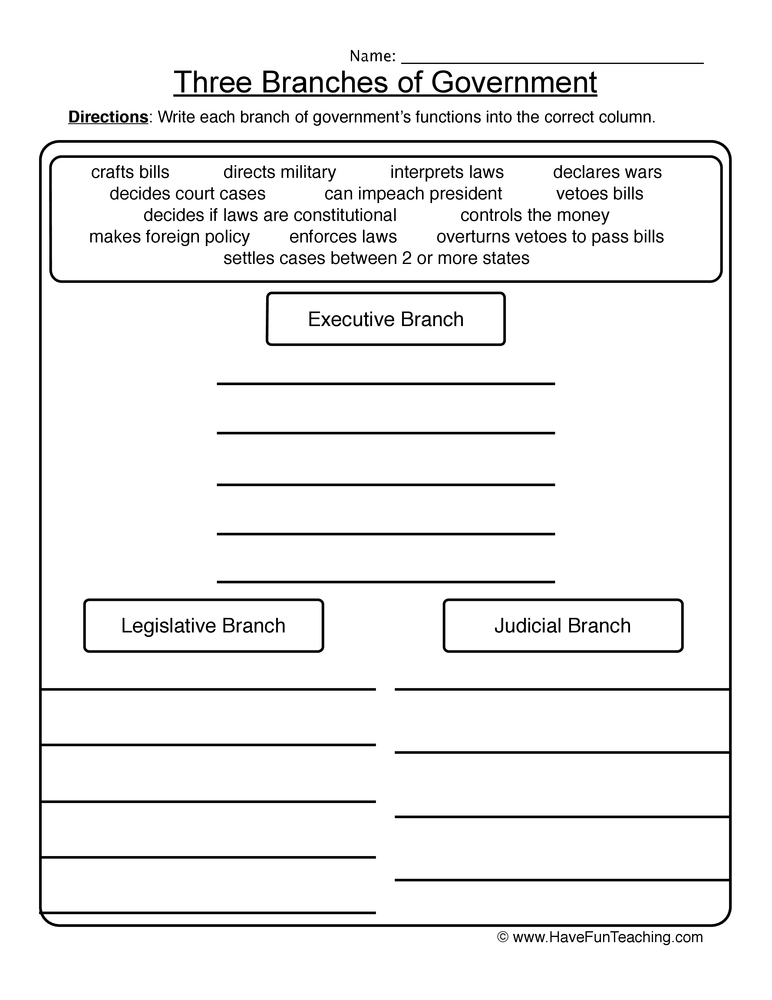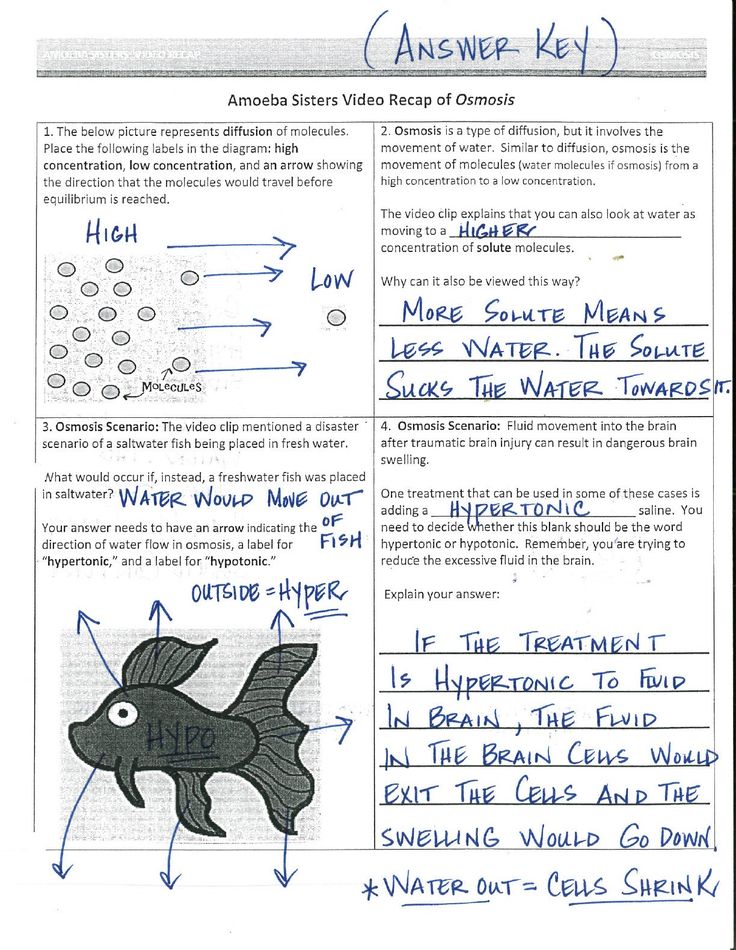3 Branches of Government Explained: Worksheets Inside

The United States operates under a system of government established by its Constitution, which distinctly separates governmental powers among different branches to prevent concentration of authority and protect liberties. In this post, we'll delve into the three branches of government — Legislative, Executive, and Judicial — and explore how each branch functions, the roles they play, and how they interact to balance power. Let's make this educational journey interactive with worksheets designed to help students understand these complex concepts in a fun and engaging way.
The Legislative Branch


The Congress forms the Legislative branch of the U.S. government, composed of two bodies:
- The Senate: Each state has two senators elected by their people for a six-year term. This ensures equal representation for all states regardless of size.
- The House of Representatives: Here, representation is based on population, with each state having a number of representatives proportional to its population. Members serve two-year terms.
The primary function of this branch is to make laws. Here are some of its key roles:
- Passing federal laws that are in line with the Constitution
- Oversight of other branches
- Approving presidential appointments and treaties
- Impeaching and removing officials when necessary
📝 Note: Remember, the Legislative Branch has the power to check the other branches to maintain balance in government.
Worksheet Activity:

| Question | Answer |
|---|---|
| What are the two parts of Congress? | Senate and House of Representatives |
| How many senators does each state have? | Two |

The Executive Branch


Headed by the President, the Executive branch is charged with executing, enforcing, and administering the laws crafted by Congress. Here's a breakdown of its primary functions:
- Head of State and Government: The President is the leader of the country.
- Commander in Chief: Oversees the military.
- Foreign Policy Leader: Negotiates treaties with foreign governments.
- Chief Executive: Enforces and administers federal law.
The President also appoints key government officials, although these appointments must be confirmed by the Senate.
📝 Note: The Executive Branch not only enforces laws but also plays a critical role in setting the agenda for domestic and foreign policy.
Worksheet Activity:

| Question | Answer |
|---|---|
| Who is the head of the Executive Branch? | The President |
| List three roles of the President: | Commander in Chief, Chief Executive, Foreign Policy Leader |
The Judicial Branch


The Judicial branch interprets the Constitution and federal laws. It consists of:
- Supreme Court: The highest court in the land with justices appointed for life.
- Lower Federal Courts: Including Circuit Courts of Appeals and District Courts.
The Judicial Branch's primary functions include:
- Resolving disputes
- Interpreting and determining the Constitutionality of laws
- Establishing legal precedents through case law
📝 Note: The Judicial Branch ensures that the law is applied fairly and consistently across the country.
Worksheet Activity:

| Question | Answer |
|---|---|
| Name the highest court in the U.S. | Supreme Court |
| How long do Supreme Court Justices serve? | For life |
In summary, the U.S. government's tripartite system of Legislative, Executive, and Judicial branches ensures that no single entity holds too much power. Each branch has distinct duties and checks on the others, creating a dynamic balance that has been pivotal in maintaining the nation's stability and liberty. The worksheets provided are educational tools to help students interact with and understand these roles better, fostering a deeper appreciation of how their government functions.
Why is the separation of powers important in U.S. government?

+
Separation of powers prevents the concentration of power, thereby protecting against tyranny. Each branch checks the others, ensuring balance and preventing abuses of power.
Can the President make laws?

+
The President can’t make laws. However, the President can propose legislation to Congress or veto bills passed by Congress. If Congress overrides the veto with a two-thirds majority, the bill becomes law.
How can the Judicial branch check the power of the other branches?

+
Through judicial review, courts can declare actions by the Executive or laws passed by Congress unconstitutional, thereby nullifying them.



